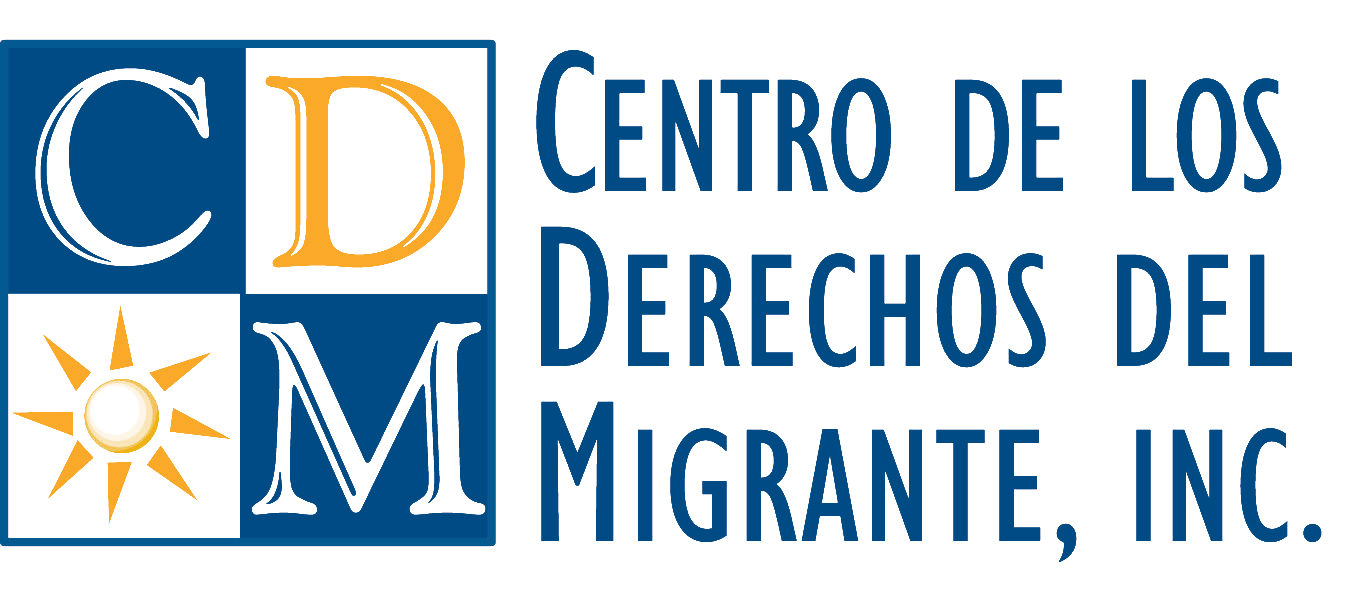PRESS RELEASE
FOR IMMEDIATE RELEASE
April 30, 2015
PRESS CONTACT:
Alissa Escarce, Centro de los Derechos del Migrante, Inc. (CDM)
1-855-234-9699
New Rules Strengthen Worker Protections within the H–2B Visa Program, Yet May Drive Down Wages
On April 29th, 2015, the U.S. Departments of Labor (DOL) and Homeland Security (DHS) published two new rules in the H–2B visa program that establish groundbreaking protections for transnational migrants and U.S. workers alike. The new rulemaking is in response to a court’s decision that cast uncertainty on the program‘s future. Workers with H–2B visas come to the United States for a temporary period of time to work in industries such as landscaping, seafood, fairs, and hospitality. Centro de los Derechos del Migrante, Inc. (CDM) has advocated for H–2B workers’ rights on both sides of the U.S.-Mexico border for nearly 10 years. CDM applauds the critical worker protections provided by the comprehensive H–2B rule, which will be finalized after a 60-day comment period. However, CDM is concerned by loopholes in the H–2B wage rule, which may cut workers’ wages.
Protections in the comprehensive rule for H–2B migrant workers include:
- Job Contracts. Employers must provide a copy of the job order to each H–2B worker in a language the worker understands no later than when the worker applies for the visa. Workers often rely on false promises about the pay and work conditions in deciding to go to the U.S. Contracts help prevent fraud and misinformation.
- Contractual Prohibition on International Labor Recruitment Fees. In their contracts with recruiters, employers must specifically prohibit recruiters from charging international labor recruitment fees. This will help prevent workers from going into debt just to get a job.
- Three-Fourths Guarantee. To prevent over-recruitment of workers, employers of H–2B workers will be required to pay them at least three-quarters of the hours promised in the work contracts. In the past, workers have been brought to the U.S. and then given little or no work, while paying high costs for housing and food.
- Prohibition on Retaliation. H–2B employers are prohibited from retaliating against workers for filing complaints, consulting with workers’ center or lawyers, and exercising any right or protection.
- Reimbursements for Visa and Transportation Fees. Employers must pay or reimburse workers for inbound travel expenses after a worker completes 50 percent of the employment contract. Employers must also cover outbound travel expenses for migrants who work until the end of the job order or who are dismissed before the end of the job order.
“I have worked three times with H–2B visas, including in the U.S. crab industry,” said Elisa Martinez Tovar, a leader of the Migrant Defense Committee from San Luis Potosí, Mexico. “I experienced several problems, including recruitment fees and lack of work in the workplace. I am grateful to the U.S. government for including these protections in the new rule, and ask them to do everything possible to ensure that they remain in the final rule.”
CDM is concerned about the wage rule released by DOL and DHS, which changes the way wages for H–2B workers are calculated. The final regulation is forecast to lower wages for all workers by allowing employers to use industry wage surveys, a practice that the Third Circuit recently struck down in Comité de Apoyo a los Trabajadores Agrícolas v. Perez. “Everyone deserves fair pay for the work they do,” said Rachel Micah-Jones, CDM’s Founder and Executive Director. “It is unacceptable for DOL and DHS to cave to political pressure from employers by systematically lowering workers’ wages.”

